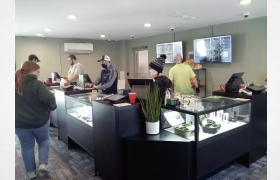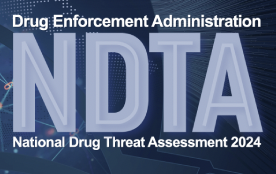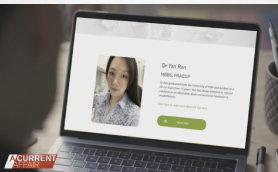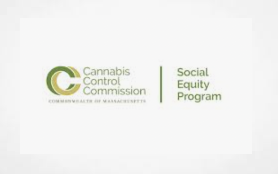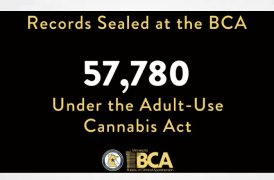As described in our earlier blog post, the Oregon Psilocybin Advisory Board (Advisory Board) is considering recommendations for entheogenic duties and privileges to counteract the lack of religious protections provided under the Oregon Psilocybin Services Act (Measure 109). In March, both the Equity and Licensing Subcommittees of the Oregon Psilocybin Advisory Board endorsed the framework of proposed rules that would supplement Measure 109’s current licensing regime and would protect the centuries-old indigenous practice of using psilocybin mushrooms for religious and spiritual purposes. The full Advisory Board at its next meeting on May 25, 2022, will vote on whether to recommend the proposed framework to the Oregon Health Authority (OHA). OHA ultimately determines final entheogenic rules and may amend or outright reject the recommendations passed by the Advisory Board. This article provides a detailed description of the framework in time to inform readers before the Advisory Board makes its recommendation.
What does the proposed entheogenic framework look like?
The framework introduces certain privileges and duties for individuals or entities who qualify as entheogenic practitioners. Practitioners include individual facilitators, nonprofit manufacturers, and nonprofit service centers. Nonprofit holds the same definition as ORS 65.001(33), meaning a mutual benefit corporation, public benefit corporation, or religious corporation.
It is important to note that the entheogenic framework is not part of Measure 109 nor is it part of the licensing regimen that Measure 109 lays out. Measure 109 contains no provisions for religious psilocybin use, so the entheogenic framework would independently supplement Oregon’s psilocybin program to increase equity and affordable access and pay proper homage to psilocybin’s historic indigenous use.
a. Practitioner Qualifications
The framework proposes that OHA may grant entheogenic privileges to an individual or legal entity that: 1) is or is affiliated with a nonprofit formed primarily for religious or spiritual purposes, 2) except for facilitators, signs attestations demonstrating that privileges granted would advance a good faith practice of a sincerely held belief or conviction, 3) agrees to exercise their entheogenic privileges in accordance with the applicable special duties, and 4) agrees to exercise their entheogenic privileges in a manner not dangerous to the health of clients or those in proximity.
Eligibility for privileges would be limited to 1) individuals with a facilitator license, and 2) nonprofit organizations with a service center license or a manufacturer license. Entheogenic privileges could only be asserted at a psilocybin service center or manufacturing premises that has been granted entheogenic privileges, and in connection with the activity of a spiritual or religious organization the practitioner is affiliated with.
b. Client Qualifications
Clients must either be 1) formally affiliated with an entheogenic service center or 2) sign an attestation demonstrating a good faith intention to practice or explore their religion or spirituality.
Clients must then complete standard intake and screening procedures and protocols, agree to conduct themselves safely, and acknowledge instructions for filing a complaint with the service center and OHA, if necessary.
Clients must also give informed consent as to the risks associated with the privileges being asserted, including consuming products produced via entheogenic manufacturing, supervision by a facilitator participating or stationed outside of the ceremonial space, and receiving peer support assistance, which involves one client assisting another during a ceremony, with a focus on harm reduction. Keep reading to the end for more discussion on peer support assistance.
Finally, the client must participate in or donate to a reciprocal exchange program, defined as a program that partners with an indigenous plant medicine community to 1) promote preservation or dissemination of indigenous knowledge or wisdom, or 2) minimize or reverse the impacts of colonialism, extraction, or cultural appropriation of indigenous communities.
c. Practitioner Privileges
The proposed framework grants entheogenic practitioners certain privileges in exchange for compliance with specific duties. The privileges granted are discussed first.
i. Facilitators
Facilitators may 1) supervise group ceremonies (outdoors optional) where the facilitator may freely engage in spiritual or religious rituals or exercises, provided they are safe; 2) supervise ceremonies led by one or more clients who have consumed psilocybin; 3) supervise or assist in the sale of, including on a flat-fee basis, and consumption of psilocybin products produced by an entheogenic manufacturer; 4) not be restricted to any particular limit in the amount of psilocybin a client may use in a ceremony; 5) facilitate any number of sessions for a client after completing one preparation session and for any client that has submitted a completed Client Information Form in the last 12 months; 6) actively participate in ceremonies, provided the facilitator does not consume psilocybin, and 7) supervise the ceremony from outside the ceremonial space, provided the facilitator remains alert and attentive to client needs.
ii. Manufacturers
The framework grants manufacturers the privilege to 1) store, handle, and discard psilocybin products in a manner in accordance with one’s beliefs or convictions, provided these methods are safe; 2) be located at or near a ceremonial space of a service center; 3) not be restricted in the psilocybin-containing mushrooms species that may be cultivated or the growing techniques or substrates that may be used; 4) to sell products on a flat-fee basis; and 5) to not have psilocybin products tested unless required due to a client’s adverse medical event.
iii. Service Centers
Service centers may 1) host ceremonies (outdoors optional) where clients may freely engage in safe spiritual or religious rituals or exercises, provided they are safe; 2) host ceremonies led by one or more clients who have consumed psilocybin; 3) host ceremonies where entheogenic facilitators participate, provided they do not consume psilocybin; 4) sell or assist in the sale of psilocybin to a client for use in a session; 5) host any number of sessions for a client who has completed one preparation session and for clients who have submitted only one completed Client Information Form in the past 12 months; 7) sell or assist in the sale of psilocybin products produced by entheogenic manufacturers; and 8) sell or assist in the sale of psilocybin products on a flat-fee basis.
d. Practitioner Duties
The framework conditions entheogenic practitioner privileges on the practitioner’s reasonable and diligent performance of the following duties.
i. Facilitators
Under the framework, facilitators must 1) remain alert and attentive to client needs when both participating or supervising a ceremony; 2) remain non-directive while participating in a ceremony; 3) refrain from consuming psilocybin products while participating in a ceremony; 4) intervene to the extent necessary to enhance, preserve, or restore client safety or wellbeing; 5) conduct candid conversations with clients about possible risks of psilocybin consumption, particularly consuming high doses; 6) provide written information to clients for submitting complaints to the service center and OHA, if necessary; and 7) conduct themselves in a manner not dangerous to the health of the client or those in proximity. These duties would apply to facilitators any time they provided services affiliated with an entheogenic service center.
ii. Manufacturers
The framework requires manufacturers to 1) provide safe products that are stored reasonably; 2) prevent diversion of psilocybin products to anywhere other than entheogenic service centers and accredited labs; 3) provide consumers with written explanations for standard product labels as necessary; 4) keep the manufacturing premises sanitary and free from nuisance; 5) conduct all activities safely; 6) preserve records of manufacturing activities and sales and provide such records to OHA upon request; and 7) participate in or donate to a reciprocal exchange program and report annually to OHA on such participation or donations. These duties would apply to manufacturers at all times. Note that psilocybin products produced utilizing entheogenic practitioner privileges may not be sold, transferred, or consumed to or at a service center that does not have entheogenic privileges.
iii. Service Centers
Service centers must 1) take reasonable steps to ensure all activities, including ceremonies, are conducted safely; 2) develop and implement policies and procedures for addressing complaints and submit reports of any incidents upon request; 3) exercise reasonable judgment in providing facilitation and peer support assistance; 4) be reasonably involved with the service center’s activities; 5) provide consumers with written explanations for standard product labels as necessary; 6) provide written notice to all affiliated facilitators that the service center enjoys entheogenic privileges; 7) report on the service center’s and clients’ participation in or donation to reciprocal exchange programs; and 8) complete and submit to OHA an incident report as necessary. These duties would apply to service centers at all times.
If an entheogenic service center has a financial interest in or affiliation with a non-entheogenic licensed service center, entheogenic duties do not apply to the non-entheogenic service center. The entheogenic service center must take reasonable steps to ensure clients, both existing and potential, are not confused about whether a service center has entheogenic privileges.
What is peer support assistance?
Peer support assistance involves one client assisting another client during a ceremony. The framework would impose formal requirements for both service centers that could offer peer support assistance during ceremonies and clients who could provide such assistance.
a. Service center obligations
Before a client could assist another client, the service center must 1) synchronously instruct the client on providing peer-support assistance in accordance with the Facilitator’s Code of Conduct, the duties prescribed under the framework, and other industry best practices; 2) certify upon knowledge that the client is qualified and capable of providing such assistance; and 3) submit to OHA a certification that the client completed the service center’s instructional requirements and, in the service center’s judgment, is qualified and capable of providing assistance. The client must sign a declaration agreeing to abide by the Code of Conduct and other statutory and entheogenic duties.
b. Client leader obligations
A client who provides peer support assistance during a ceremony must 1) provide assistance in accordance with industry best practices; 2) alert facilitators supervising ceremonies from outside when additional assistance would enhance, preserve, or restore client safety or wellbeing; 3) defer to the facilitator concerning the best course of action to promote client safety and wellbeing; and 4) remain capable of providing assistance at all times throughout the ceremony. Clients who provide assistance may not receive compensation for their services.
c. When peer support assistance is appropriate
Peer support assistance would potentially give service centers and facilitators discretion to deviate from the generally applicable facilitator-client ratios that have yet to be determined by OHA. The framework mandates that in offering peer support assistance, the service center or facilitators should consider the following relevant factors: 1) the operator’s and facilitator’s familiarity with the clients participating in the ceremony; 2) the types of ceremonial activities the group intends to engage in; 3) the group and its members’ prior experience with psilocybin or other psychedelics; 4) the amount of cohesion or discord present in the group, if known to the operator or facilitator; 5) the relevant experience of the clients providing peer support assistance; 6) the relevant experience, skill, and number of entheogenic facilitators providing supervision; and 7) any other risk factors the operator or facilitator knows or should know about.
Conclusion
The entheogenic framework proposes unique privileges that would expressly permit psilocybin use for religious or spiritual purposes, in exchange for compliance with a variety of duties mainly focused on ensuring all services would be conducted safely for clients, facilitators, service center employees, and the public. The full Advisory Board votes on whether to recommend the framework to OHA this week. We plan to tune in and report back on the Board’s decision—watch this space.
You can contact Allison Campbell at info@gl-lg.com or 503-488-5424.
Learn more and contact at
https://greenlightlawgroup.com/blog/a-closer-look-at-entheogenic-rules-for-psilocybin-services
